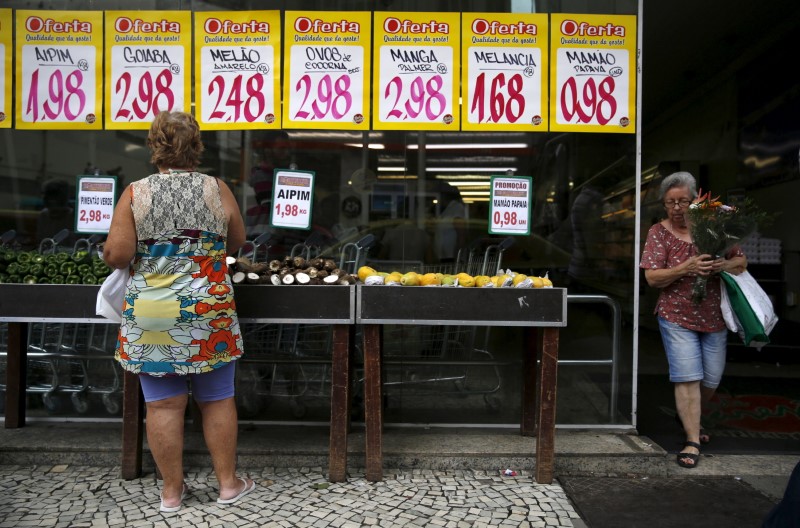By Alonso Soto and Silvio Cascione
BRASILIA (Reuters) - Brazil's central bank is widely expected to keep its moderate pace of interest rate cuts on Wednesday due to growing political and market uncertainty clouding the path to recovery from a grueling two-year recession.
Brazil's economy shrank for a seventh straight time in the third quarter, raising pressure on the bank to keep easing policy. However, market turmoil triggered by the election of Donald Trump to the White House and a political scandal at home have investors betting on caution.
Fifty-four out of 64 analysts surveyed by Reuters believe the bank will cut its benchmark Selic rate
Economic output shrank 0.8 percent in the third quarter from the second, statistics agency IBGE said. There were no bright spots as investments dropped sharply, farmers, manufacturers and service providers all reduced production, and families and government agencies consumed less.
"Fourth-quarter numbers do not give much reason for optimism either. Confidence indicators are signaling they could fall, reflecting some disappointment with how long the economy is taking to lift off," said Newton Rosa, chief economist at SulAmerica Investimentos.
The government last week cut its 2017 growth estimate to 1 percent from 1.6 percent, but some analysts do not rule out a third year of recession with lingering doubts over the government's capacity to shore up its depleted public accounts.
Following Trump's surprise victory on Nov. 8, market volatility spiked on expectations his promises for fiscal stimulus could raise U.S. interest rates and spark a flight of capital from riskier markets. The Brazilian currency
More recently an ethics scandal within President Michel Temer's cabinet has raised fears he could lose support in Congress to push ahead austerity reforms key to allow the central bank to keep lowering some of the world's highest interest rates.
Even after the Senate approved Temer's proposal to cap federal spending in a first-round vote late on Tuesday, violent demonstrations outside Congress rekindled fears of more street turmoil ahead.
Most analysts predict the bank will wait until its next meeting in January to step up monetary easing in the face of what could be the country's worst recession on record.

"One possibility is that the board will cut by 25 basis points again but adopt more dovish language, to start paving the way for a faster rate-cutting pace next year," analysts with BNP Paribas (PA:BNPP) wrote in a research note.
(Additiobal reporting by Camila Moreira; Editing by Meredith Mazzilli and Chizu Nomiyama)